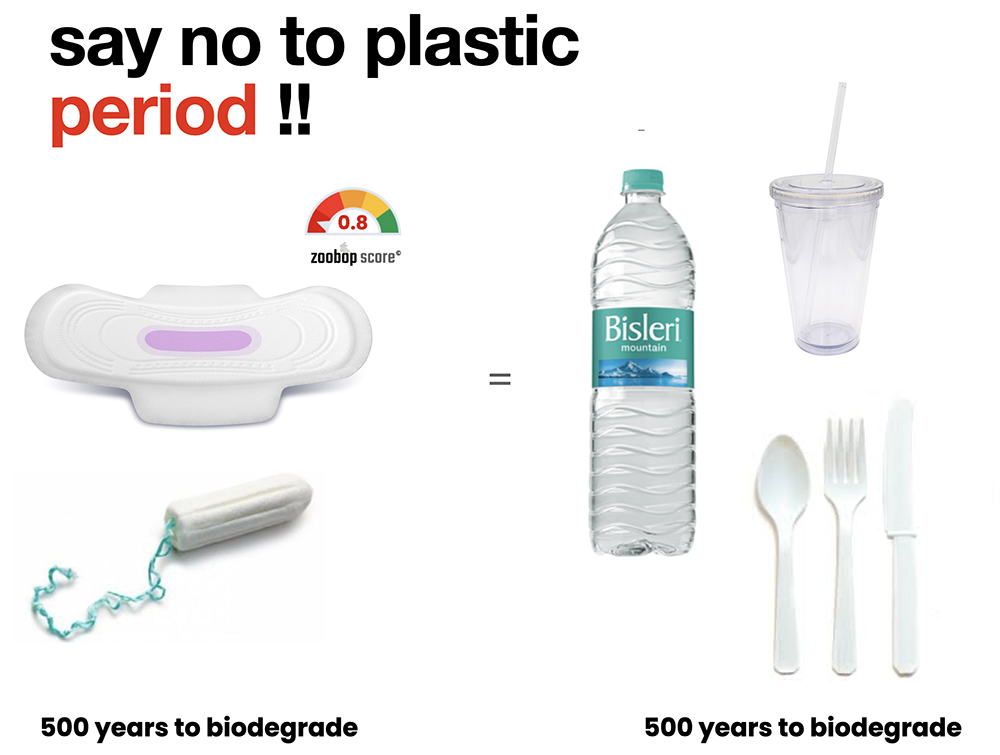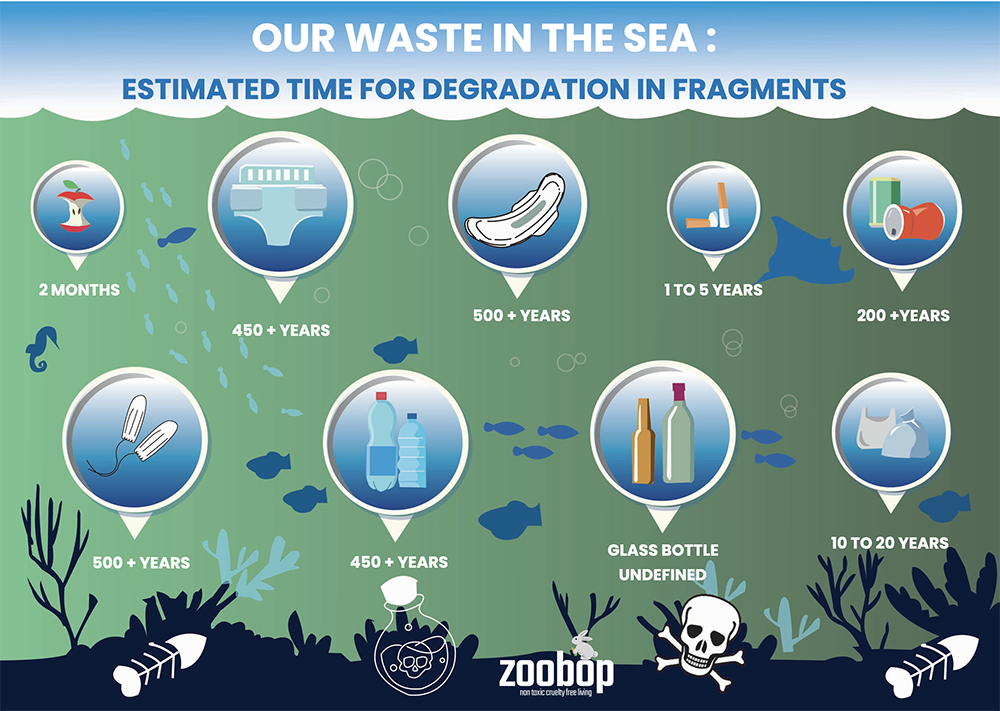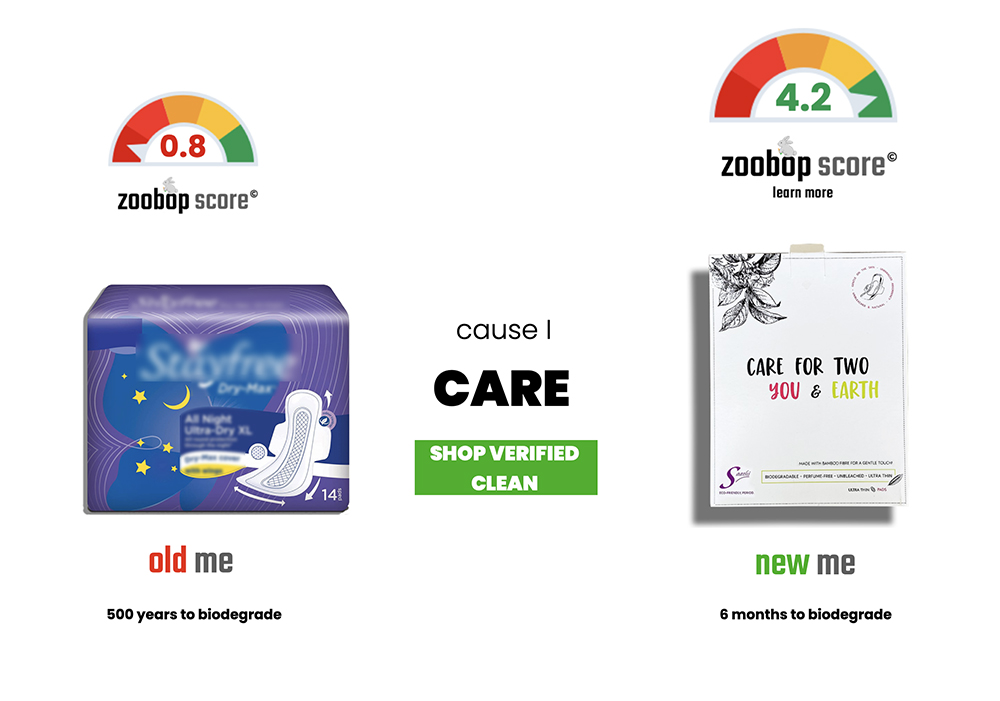500 years- that’s how long it
takes for a regular sanitary
pad to decompose.
Is that reason
enough to switch? A single woman, you alone, are
generating up to 125 kgs of non-biodegradable waste
during your menstruating years.

FACT: Pads are made of Super Absorbent Polymer
(SAP), a non-biodegradable material, along with
Polyethylene (PE) and polypropylene. Tampons too are
made of plastic (even the applicator has plastic).
About 12 billion pads are
disposed in India annually, as per
WSSCC. In urban India, 13% menstrual waste is
dumped in water bodies or in open spaces like
grounds near/outside the city or by roadside in large
bins. 8% is buried, 9% is burnt and 10% is flushed. A
burnt pad releases harmful toxins like dioxins and
furans which are seriously hazardous to your health
and the environment.

How do you dispose yours?
Are you flushing it or wrapping it all up in a
polythene and leaving it in the bin? Billions of noncompostable sanitary pads make their way into sewerage systems, landfills, fields and water
bodies in India every month. And one such pad
can take as long as 500 years to fully break down.
According to Brihanmumbai
Municipal Corporation (BMC) data,
about 510 metric tonnes of sanitary
pads and diapers are dumped in the
city of Mumbai every day.

Synthetic Pads have
chemicals too!!. Dioxin, a harmful
toxin, is used to bleach the cotton material which is
used in the absorbent layer of the pad and can
lead to pelvic inflammatory disease, ovarian cancer,
immune system damage, impaired fertility and
diabetes. Synthetic fragrances are added to these
pads which often lead to rashes in most women.
should use bio degradable sanitary pads and use a
cloth pad for her light flow days (if not all).
Our guide to a green period